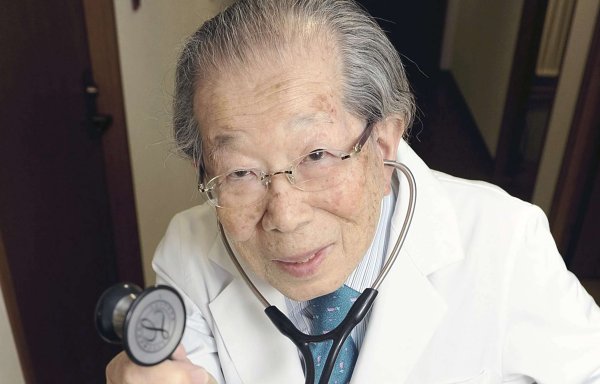Japanese Physician Who Studied Longevity (And Lived To 105) Reveals The Secrets To A Long Life
Tags: opinion
By Amanda Froelich Truth Theory
If you desire to live a long, healthy life, you won’t want to miss what Japanese doctor Shigeaki Hinohara proclaimed to be the “secrets” to living a long and rich life. The physician would know, as he helped build the foundations of Japanese medicine, studied longevity and even lived to the ripe old age of 105.
Hinohara, who died on July 18, 2017, was the chairman emeritus of St. Luke’s International University and the honorary president of St. Luke’s International Hospital. In an interview with Judit Kawaguchi of Japan Times on the topic of longevity, he recommended several basic guidelines for longevity. One of them is to retire later on in life.
1) Retire later in life
Because people are living much longer — particularly in Japan, Dr. Hinohara claims they should be retiring later, as well. The physician took his own advice to heart. Months before he died — even at the age of 105-years-old, Hinohara continued to treat patients, reports The Independent. He kept an appointment book with space for five more years and worked up to 18 hours a day!
SUBSCRIBE TO THE TRUTH THEORY YOUTUBE CHANNEL, CLICK HERE
“He believed that life is all about contribution, so he had this incredible drive to help people, to wake up early in the morning and do something wonderful for other people. This is what was driving him and what kept him living,” Kawaguchi told the BBC. “He always had today’s goals, tomorrow’s, and the next five years.”
2) Have more fun
Other guidelines recommended by Hinohara include worrying less about eating well or getting enough sleep and spending more time having fun. “We all remember how as children, when we were having fun, we often forgot to eat or sleep. I believe that we can keep that attitude as adults, too. It’s best not to tire the body with too many rules such as lunchtime and bedtime,” said Hinohara.
3) Eat right, stay trim
The Japanese researcher also advised against being overweight. His own regime was quite strict: “For breakfast I drink coffee, a glass of milk, and some orange juice with a tablespoon of olive oil in it,” said Hinohara. “Olive oil is great for the arteries and keeps my skin healthy. Lunch is milk and a few cookies, or nothing when I am too busy to eat. I never get hungry because I focus on my work. Dinner is veggies, a bit of fish and rice, and, twice a week, 100 grams of lean meat.”
4) Question everything — including your doctor’s advice
Even though Hinohara was a doctor, he told patients to do their own research and listen to their own intuitions. “When a doctor recommends you take a test or have some surgery, ask whether the doctor would suggest that his or her spouse or children go through such a procedure,” he said. “Contrary to popular belief, doctors can’t cure everyone. So why cause unnecessary pain with surgery? I think music and animal therapy can help more than most doctors imagine.”
5) Exercise more
As one might expect, exercise is always advised! “I take two stairs at a time, to get my muscles moving,” said Hinohara. The doctor also recommended having more fun to combat pain — which is inevitable in life.
“Pain is mysterious, and having fun is the best way to forget it. If a child has a toothache, and you start playing a game together, he or she immediately forgets the pain. Hospitals must cater to the basic need of patients: We all want to have fun. At St. Luke’s we have music and animal therapies, and art classes,” said Hinohara.
The wise physician may be gone from this world, but his legacy and advice live on. Do you agree or disagree with his recommendations? Comment below and share this news!


Leave Comment: